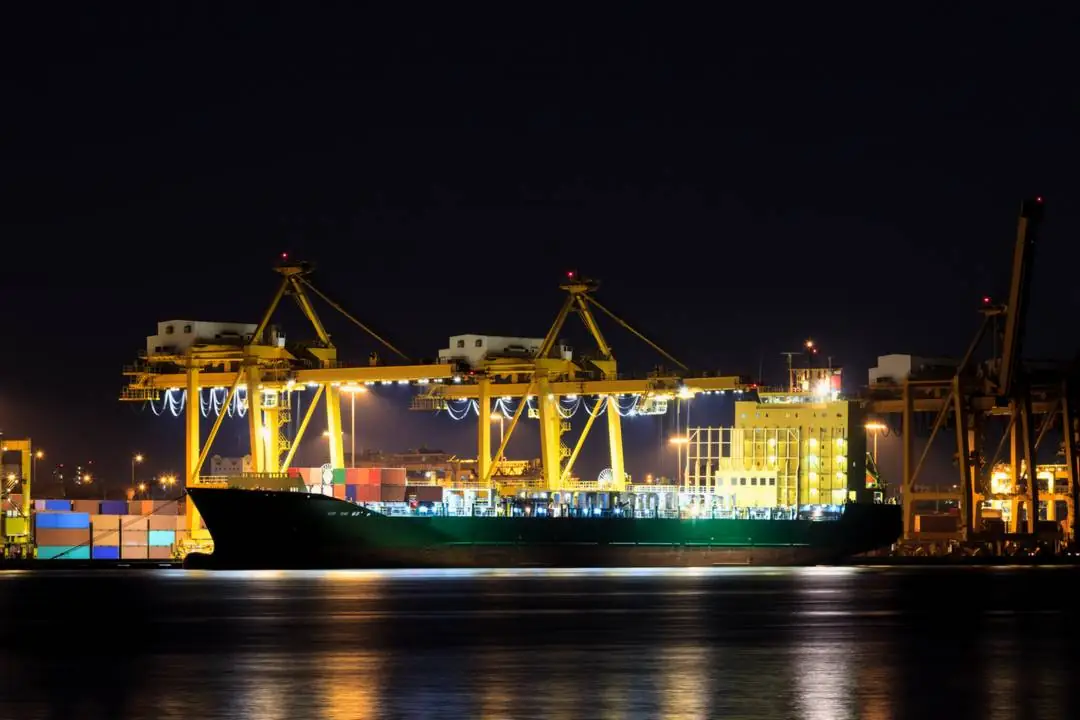Listen to the podcast of this article and discover the main accounting and tax challenges facing trading companies and how compliance can bring security and efficiency to import and export operations.
Trading companies deal with complex taxes and fiscal risks. Find out how to structure operations with security and support from CLM Controller.
Trading companies acting as intermediaries in international trade require extra attention to accounting and tax aspects.
Although this operating model offers logistical and commercial advantages, it requires a technical structure to deal with complex tax regulations, customs compliance and strict internal controls.
In this content, you will understand the main challenges facing trading companies in the market, the main risks of non-compliance and how to overcome them - especially with the support of experts.
Read on and find out how to make your operation safer and more in line with legal requirements!
What are trading companies and how do they operate?
Trading companies are companies specializing in the intermediation of international business.
They buy products from a supplier (usually abroad) and resell them to client companies (in Brazil or other countries), assuming tax and operational obligations for the transaction.
This model has several advantages:
- access to global suppliers with better prices and conditions;
- facilitating import processes and export for companies with little experience;
- the possibility of optimizing the tax burden with proper planning.
In addition, trading companies play a strategic role for companies wishing to expand their global operations without directly assuming the logistical and bureaucratic risks of foreign trade.
They offer technical know-how, the structure to deal with exchange rate variations and mastery of the regulatory requirements of international markets. This reduces complexity and increases predictability for the end customer.
Another relevant aspect is the ability to consolidate loads and negotiate on a large scale, which favors small and medium-sized companies that would not have bargaining power individually.
By outsourcing international operations, these companies can focus on their core business while guaranteeing access to foreign products and markets.
However, this type of intermediation requires in-depth knowledge of tax and customs legislation - which is why it's important to have a partner in this work, as we'll see later in the text.
Tax challenges faced by trading companies
Correct tax assessment is one of the most critical points in the operation of trading companies. As they involve two ends - the international purchase and the sale on the domestic or foreign market - the transactions require attention to specific taxes. Let's get to know the main points.
Main taxes involved
Tax obligations vary according to the type of operation (import or export) and the company's tax regime. The main taxes that need to be correctly assessed include:
- II (Import Tax);
- IPI (Tax on Industrialized Products);
- ICMS (Tax on Circulation of Goods and Services);
- PIS/Cofins-Import;
- ISS (when applicable);
- Resale taxes (ICMS, PIS, Cofins, IPI, among others).
Errors in the product's tax classification or in filling in documents can lead to heavy fines and obstacles to customs clearance.
Compliance with customs regulations
Another essential aspect is customs complianceThis ensures compliance with the rules of the Internal Revenue Service, Siscomex and the consenting bodies (such as Anvisa, Inmetro and MAPA).
Mandatory procedures to avoid penalties
In order to maintain regular operations, the company must comply:
- correct tax classification in the NCM (Mercosur Common Nomenclature);
- registration of Import Declaration (DI) and Single Export Declaration (DU-E);
- control of documents such as commercial invoices, bills of lading and certificates of origin;
- analysis of special regimes (such as Drawback and Recof) that reduce the tax burden, provided they are correctly applied.
Failure to comply with these requirements can jeopardize operations and lead to blockages in government systems.
Internal controls and specialized accounting
In addition to tax obligations, trading companies need a accounting control to manage stocks, profit margins and profitability indicators.
Recommended accounting structure
Efficient accounting for trading companies must include:
- individualized record of each operation, with batch and order control;
- separate assessment of taxes by customer and supplier;
- differentiation between intermediation income and own income;
- traceability of logistics and exchange costs to calculate the effective cost.
It is also necessary to periodically assess exposure to exchange rate risk and make adequate provisions, especially for long contracts or those with price variations.

Foreign Trade
Content with free materials!
The role of technology in accounting for trading companies
The digital transformation has also reached the accounting sector, and trading companies can benefit significantly from adopting modern management systems.
Benefits of ERPs and tax automation
Solutions such as integrated ERPs and tax automation tools offer this:
- consistency in issuing tax and customs documents;
- automatic calculation of taxes based on NCM and origin of goods;
- integration between accounting, stock, accounts payable and logistics;
- generating reports for strategic decision-making.
With these resources, the company not only reduces human errors, but also increases the productivity of the accounting team and strengthens corporate governance.
Impacts of tax planning on trading companies
Tax planning is an indispensable strategic tool for trading companies, as it allows them to legally reduce their tax burden and avoid future tax liabilities.
In this context, it is essential to understand not only the taxes levied on operations, but also the benefits and tax regimes available.
Tax regimes and incentives
Choosing the right tax regime has a direct impact on the company's profitability. In addition, there are specific incentives for foreign trade operations, such as:
- Drawbackregime in which there is a suspension or elimination of taxes on imported inputs used in exported products;
- RECOFThis allows the entry of goods with suspended taxes for subsequent industrialization and export;
- Bonded Warehousestorage with suspension of payment of taxes until nationalization or re-export.
These schemes require strict control and specialized technical monitoring to ensure legal compliance.
Accounting aspects of triangular operations
Many trading companies operate triangular operations, buying from one country and selling to another without the goods passing through Brazil. These operations require different accounting treatment:
- inventory control even without physical entry;
- segregation of logistics and exchange costs;
- correct issue of invoice, knowledge and proforma invoice;
- compatibility with the rules of the country of destination and origin.
A accounting Internationalization becomes essential in these cases, with a focus on avoiding double taxation and ensuring the correct bookkeeping of transactions.
It is also important to record exchange contracts correctly, handle monetary variations appropriately and comply with the accounting rules applicable to revenue recognition.
Document flow monitoring also needs to be rigorous, with attention paid to the legislation of each jurisdiction involved.
Neglecting any of these steps can compromise the reliability of accounting records and generate unexpected liabilities. This is why constant technical supervision is indispensable for the smooth running of these operations.
Risks of non-compliance and how to avoid them
The operations of a trading company are under constant scrutiny by the Federal Revenue Service and other regulatory bodies. Failure to comply with the rules can result in:
- fines exceeding 100% of the value of the transaction;
- suspension of RADAR;
- customs blockades and loss of goods;
- damage to the company's image and reputation.
You can avoid these risks with the following practices:
- frequent internal auditsThese detect flaws in processes and make it possible to correct them before they become liabilities;
- tax and customs compliance policiesThese guide conduct and reinforce the culture of compliance throughout the organization;
- use of ERPs and tax automationThis minimizes operational errors and improves the control of accessory obligations;
- support from consultancies such as CLM ControllerThis is a great opportunity to learn about the latest legislation, which offers a strategic and up-to-date view of legislation, as well as helping to structure preventive processes and review tax practices.
Adopting these measures strengthens governance and protects the company from unpleasant surprises, guaranteeing more legal certainty and peace of mind when operating in the future. foreign trade.
Why rely on CLM Controller?
CLM Controller offers complete technical support for trading companies, from the initial structuring to the accounting and tax maintenance of the operation. Its differentials include:
- tax consultancy specializing in foreign trade;
- support in inspections and audits;
- training internal teams;
- review and prevention of hidden liabilities.
In addition to these fronts, CLM offers integrated solutions that combine technology, data intelligence and customization according to each company's profile.
Our multidisciplinary team is prepared to map risks, suggest improvements and implement efficient processes that adapt to the specific requirements of trading companies.
Systemic view of processes
Another important highlight is CLM's ability to interact with the various links in foreign trade - freight forwarders, logistics operatorsand regulatory bodies - promoting coordinated action that avoids bottlenecks and rework. This systemic vision increases control over operations and improves tax predictability.
CLM also offers support in document management, guaranteeing the integrity of tax and accounting information, and facilitates meeting international compliance requirements, such as transfer pricing regulations, certificates of origin and accounting due diligence.
With this robust support, companies of any size can structure their foreign trade operations in a safe, scalable and competitive way. CLM positions itself not just as a service provider, but as a strategic partner in the sustainable growth of trading companies.
Do you need support to structure your operation safely and efficiently? CLM Controller has proven experience in providing accounting and tax support to trading companies. Click on the button below and talk to a specialist. Let's help your company grow with compliance and tax intelligence!

Upgrade your finances:
Talk to us!






